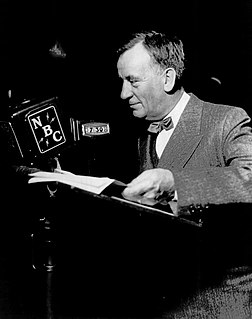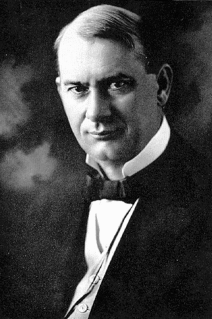A Quote by Galileo Galilei
The theologians also should not be irritated. For if they find that this opinion is false, then they would be free to condemn it; and if they discover that it is true, they ought to thank those who have opened the way to finding the true sense of the Scriptures and who have prevented them from falling into the grave scandal of condemning a true proposition.
Related Quotes
All religions, plainly and simply, cannot be true. Some beliefs are false, and we know them to be false. So it does no good to put a halo on the notion of tolerance as if everything could be equally true. To deem all beliefs equally true is sheer nonsense for the simple reason that to deny that statement would also, then, be true. But if the denial of the statement is also true, then all religions are not true.
In regard to the philosophers, if they be true philosophers, i.e., lovers of truth, they should not be irritated that the earth moves. Rather, if they realize that they have held a false belief, they should thank those have shown them the truth; and if their opinion stands firm that the earth doesn't move, they will have reason to boast than be angered.
Either Christianity is true or it's false. If you bet that it's true, and you believe in God and submit to Him, then if it IS true, you've gained God, heaven, and everything else. If it's false, you've lost nothing, but you've had a good life marked by peace and the illusion that ultimately, everything makes sense. If you bet that Christianity is not true, and it's false, you've lost nothing. But if you bet that it's false, and it turns out to be true, you've lost everything and you get to spend eternity in hell.
We have hitherto considered only two possibilities: that the received opinion may be false, and some other opinion, consequently, true; or that, the received opinion being true, a conflict with the opposite error is essential to a clear apprehension and deep feeling of its truth. But there is a commoner case than either of these; when the conflicting doctrines, instead of being one true and the other false, share the truth between them.
If one denies that, when the meaning is true, then the meant is what is so, one rejects propositional truth. If the rejection is universal, then it is the self-destructive proposition that there are no true propositions. If the rejection is limited to the dogmas, then it is just a roundabout way of saying that all the dogmas are false.
Pure mathematics consists entirely of assertions to the effect that, if such and such a proposition is true of anything, then suchand such another proposition is true of that thing.... Thus mathematics may be defined as the subject in which we never know what we are talking about, nor whether what we are saying is true.
It is more important that a proposition be interesting than that it be true. This statement is almost a tautology. For the energy of operation of a proposition in an occasion of experience is its interest and is its importance. But of course a true proposition is more apt to be interesting than a false one.
Religion becomes a matter of belief, and belief acts as a limitation on the mind; and the mind then is never free. But it is only in freedom that you can find out what is true, what is God, not through any belief; because your belief projects what you think God ought to be, what you think ought to be true. If you believe God is love, God is good, God is this or that, your very belief prevents you from understanding what is God, what is true.
Israel will never get true security and safety through oppressing another people. A true peace can ultimately be built only on justice. We condemn the violence of suicide bombers, and we condemn the corruption of young minds taught hatred; but we also condemn the violence of military incursions in the occupied lands, and the inhumanity that won't let ambulances reach the injured.



































